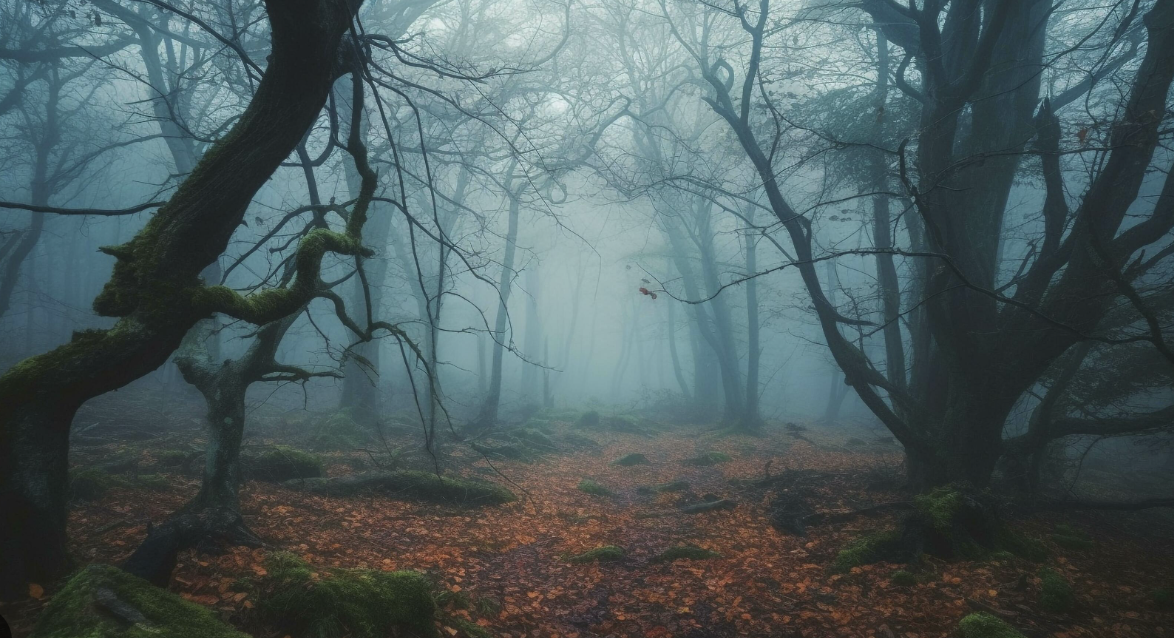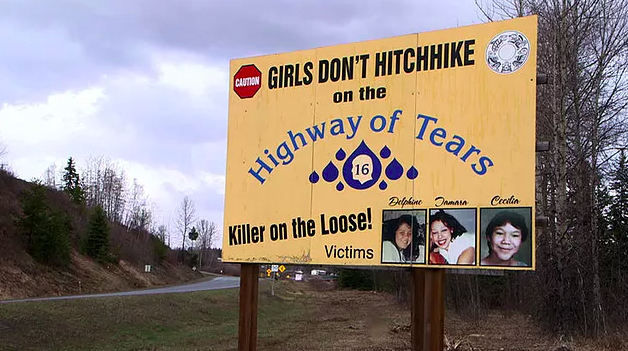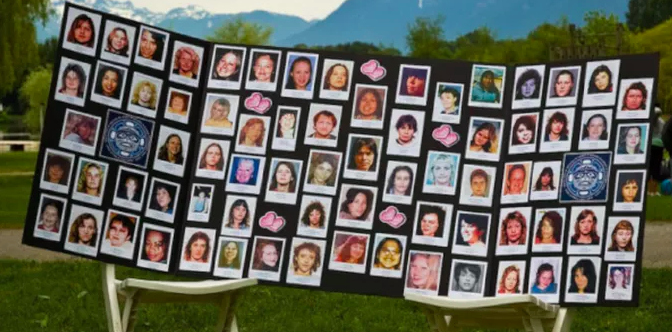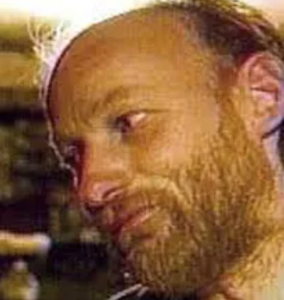
Mysterious Stories Blog
Strange, disturbing and mysterious stories from the outdoors
The terrible story of Canada’s Highway of Tears
Revised May 2024
Canada's Highway of Tears
"Highway of Tears," a documentary film by Matthew Smiley, was released in 2015 to critical acclaim. The film focused on the Royal Canadian Mounted Police (RCMP) 's ill-treatment of indigenous First Nations people, the impact of high unemployment, and the numerous unsolved murders along Highway 16 in Canada's British Columbia. The road is 720km long and runs from Prince George to Prince Rupert.
Background the murders around Highway 16
Since 1969, an estimated 40 women have gone missing or have been found murdered somewhere along Highway 16 and its huge surrounding forests.
Over half of these women have belonged to Aboriginal First Nation communities. Across Canada since the 1960s, nearly 600 Aboriginal women have been reported as missing or victims of homicide. It is, therefore, no wonder that Highway 16 has been colloquially renamed the "Highway of Tears".
The story goes way back in Canada with the poor treatment of the indigenous population by the authorities, just like in Australia or the USA.
150 years ago residential schools were set up in Canada with mandatory attendance for all 7 to 15-year-olds. Around 80,000 children were forcibly removed from families, homes, and communities to assimilate aboriginal youth into mainstream "Canadian Culture". Allegedly, they were abused, badly fed, and housed. The kids were allowed no contact with family, nor allowed to practice any part of their culture.
In 2008, the Canadian government finally issued an official apology, but it was arguably many years too late. The whole episode was a real blight on Canada and its administrators.
The interesting thing is the residential homes and the Highway of Tears are linked. The RCMP were the people who took children away and were the truant officers when kids ran away. So, there is an intrinsic mistrust by the First Nations of the police, with fear of retaliation.
Many people from poorer communities in British Columbia don't have vehicles and have relied on hitchhiking as essential services like hospitals are located far away. Many people in the communities turn to alcohol, drugs, stealing, gambling and violence as a distraction. This puts people at risk and also means the mainstream Canadian media has been historically hostile.
The disappearance of Nicole Hoar
Despite many disappearances on Highway 16 over the years, it was only when a white woman, Nicole Hoar, age 25, disappeared on June 21, 2002, and the case was picked up by the media.
Before this, indigenous aboriginal women went missing for years, but there was little publicity as the media, in many cases, falsely labelled them as prostitutes or drug users who almost deserved to go missing, though, of course, some fitted this description.
Project E-PANA
In the fall of 2005, the British Columbia RCMP initiated Project E-PANA, created to investigate the unsolved cases of nine missing or murdered women along the Highway 16 route. In 2007, E-PANA expanded its investigations to cover the cases of eighteen women - 13 homicides and 5 missing people incidents, dating from 1969.
But it is estimated that over 600 women were murdered in Canada over this period and half the cases have never been solved. The project managed to link DNA to Portland drifter Bobby Jack Fowler with the 1974 murder of 16-year-old hitchhiker Collen MacMillan.
Robert William "Willy" Pickton the pig farmer from hell
Another damning example of incompetence by the Royal Canadian Mounted Police was the case of Willy Pickton.
Robert William Pickton (born October 24, 1949) of Port Coquitlam, British Columbia was a multi-millionaire pig farmer and owned a property 27km from Vancouver.
He was to be a prolific serial killer and convicted in 2007 of the second-degree murders of six women. He was also charged with the deaths of an additional 20 women, many of them from Vancouver's Downtown Eastside. In December 2007, he was sentenced to life in prison, with no possibility of parole for 25 years, the longest sentence then available under Canadian law for murder.
On February 6, 2002, police executed a search warrant for illegal firearms at the property. After the brothers were taken into custody, police obtained a second court order to search the farm as part of the BC Missing Women Investigation. Personal items (including a prescription asthma inhaler) belonging to one of the missing women were found at the farm, which was sealed off by members of the joint RCMP–Vancouver Police Department task force. The following day Pickton was charged with storing a firearm contrary to regulations but later released and kept under police surveillance.
William "Willy" Pickton
On February 22, Pickton was rearrested and charged with two counts of first-degree murder in the deaths of Sereena Abotsway and Mona Wilson. On April 2, three more charges were added for the murders of Jacqueline McDonell, Diane Rock, and Heather Bottomley. A sixth charge for the murder of Andrea Joesbury was given on April 9, followed shortly by a seventh for Brenda Wolfe. On September 20, four more charges were added for the murders of Georgina Papin, Patricia Johnson, Helen Hallmark, and Jennifer Furminger. Yet more charges for the murders of Heather Chinnock, Tanya Holyk, Sherry Irving and Inga Hall were laid on October 3, bringing the total to fifteen, making the investigation the largest of any serial killer in Canadian history. On May 26, 2005, 12 more charges were laid against him for the killings of Cara Ellis, Andrea Borhaven, Debra Lynne Jones, Marnie Frey, Tiffany Drew, Kerry Koski, Sarah de Vries, Cynthia Feliks, Angela Jardine, Wendy Crawford, Diana Melnick, and Jane Doe (unidentified woman) bringing the total number of first-degree murder charges to 27.
During the trial's first day of jury evidence, January 22, 2007, the Crown stated he confessed to 49 murders to an undercover agent from the Office of Inspector General, posing as a cellmate. The Crown reported that Pickton told the officer that he wanted to kill another woman to make it an even 50 and that he was caught because he was "sloppy".
Forensic analysis proved difficult because the bodies may have been left to decompose or be eaten by insects and pigs on the farm. On March 10, 2004, it was revealed that Pickton may have ground up human flesh and mixed it with pork that he sold to the public; the province's health authority later issued a warning. Another claim was made that he fed the bodies directly to his pigs.
At a press conference, Deputy Chief Constable Doug LePard of the Vancouver Police Department apologized to the victims' families, saying "I wish from the bottom of my heart that we would have caught him sooner. I wish that the several agencies involved that we could have done better in so many ways. I wish that all the mistakes that were made we could undo. And I wish that more lives would have been saved. So on my behalf and behalf of the Vancouver Police Department and all the men and women who worked on this investigation, I would say to the families how sorry we all are for your losses and because we did not catch this monster sooner".
Government investigation
In October 2010, three years after Pickton was sentenced, pressure from the Vancouver community forced the Canadian government and RMCP to start a missing women's inquiry which concluded that they did not investigate the disappearances properly. Over $100 million was eventually spent on the investigation and trial.
The various government enquires finally recommended that:
A Shuttle bus transportation system using GreyHound buses be established on route 16 (as of 2017 the bus service is under threat due to budget cuts)
The number, type, and frequency of health and social services are improved
RCMP continue its E-PANA investigation into missing women
It is believed that several serial killers have stalked Route 16 over the last 30-40 years. The big question remains: why is Canada so full of these serial killers in the area to the east of Vancouver? It is purely a response to the way that the indigenous population has been portrayed or something more sinister in this frontier land. For your own safety, no solo hitchhiking in British Columbia!
Exclusive articles for members of StrangeOutdoors that are not available elsewhere on the site.
Read other strange stories from Canada
The strange and disturbing death of David Koch on Grouse Mountain
The baffling disappearance of Sylvia Apps from Strathcona Provincial Park
The puzzling disappearance of Jonathan Jetté and Rachel Bagnall near Valentine Lake
The unsolved disappearance of Ryan Shtuka in Sun Peaks
The mysterious disappearance of Gordon Sagoo on Baby Munday Peak
The shocking Ali Naderi Disappearance on British Columbia's Eagle Mountain
The controversial disappearance and death of Jordan Naterer in British Columbia
The Kamloops Triangle - The British Columbia murders and disappearances
The strange phenomenon of the human feet in running shoes on the coast of the Salish Sea in Canada
Mysteries of the Nahinni Park Reserve in Canada
The strange deaths of David Horesay and Frederick Hardisty in the Northwest Territories
The disturbing disappearance and death of Andrew Warburton in Nova Scotia
The mysterious disappearance of cyclist Marty Leger in Nova Scotia





